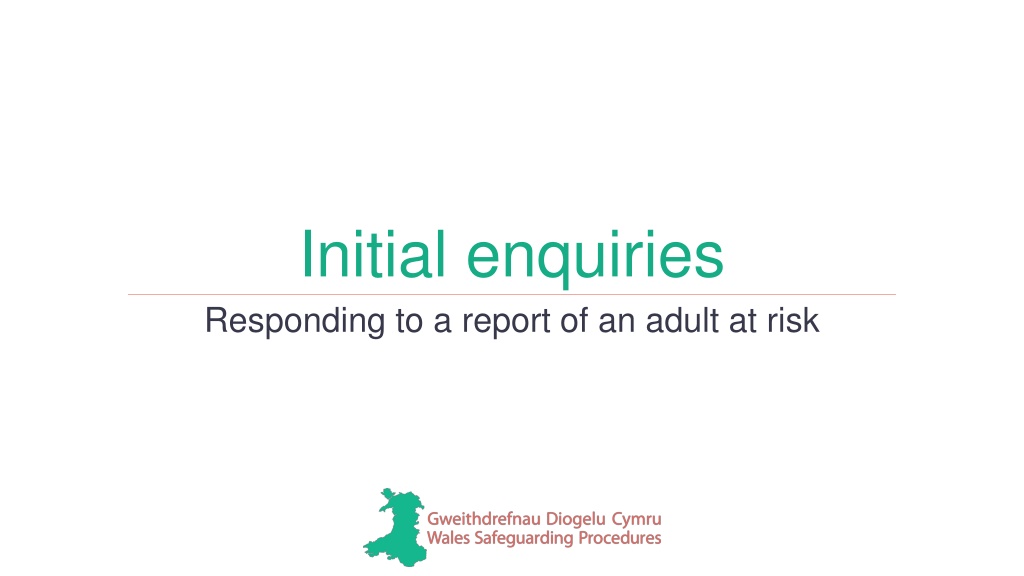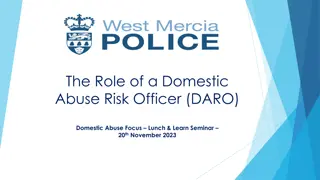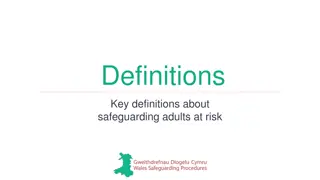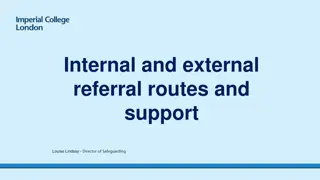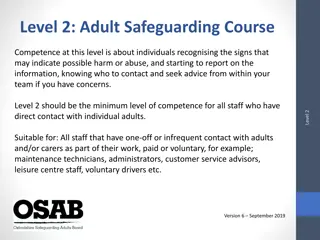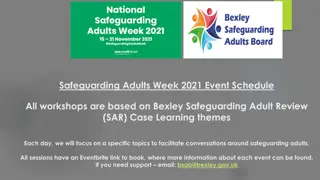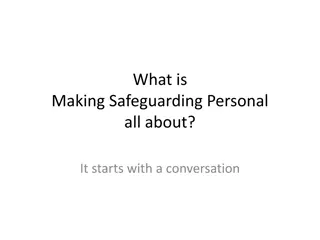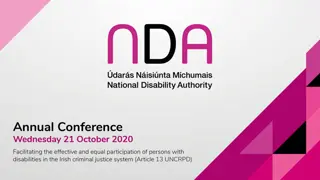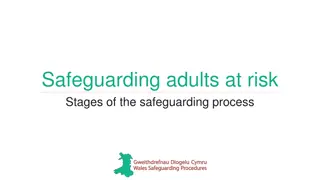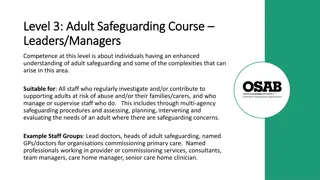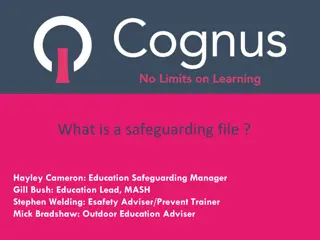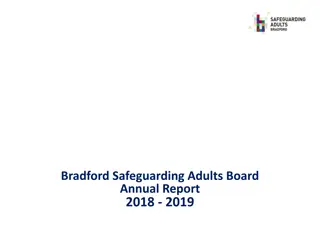Safeguarding Process for Adults at Risk
This resource outlines the safeguarding process for responding to reports of adults at risk, including making reports to social services, conducting initial checks, initiating enquiries and investigations, and making decisions on further actions. It covers key steps such as gathering information, conducting investigations, and reaching conclusions to ensure the safety and well-being of adults at risk.
Download Presentation

Please find below an Image/Link to download the presentation.
The content on the website is provided AS IS for your information and personal use only. It may not be sold, licensed, or shared on other websites without obtaining consent from the author.If you encounter any issues during the download, it is possible that the publisher has removed the file from their server.
You are allowed to download the files provided on this website for personal or commercial use, subject to the condition that they are used lawfully. All files are the property of their respective owners.
The content on the website is provided AS IS for your information and personal use only. It may not be sold, licensed, or shared on other websites without obtaining consent from the author.
E N D
Presentation Transcript
Initial enquiries Responding to a report of an adult at risk
Report received by social services Make report to social services Discuss with line manager or DSP Safeguarding concern
Responding to a report Initial checks and decisions
Report received by social services Complete initial checks: ensure information is accurate consider existing records confirm consent clarify if police informed establish if others at risk All reports treated same way, regardless of: whether alleged maltreatment is in or outside the family whether a repeat report the source of the report
Enquiry v Investigation Enquiry The process of gathering information Conducted by social services when there is reasonable cause to suspect that a person within its area is an adult at risk
Enquiry v Investigation Investigation The process of gathering evidence conducted by: the police when a criminal offence relating to abuse and neglect is suspected to have occurred social services to reach a conclusion as to whether a person has been placed at risk or is at ongoing risk normally preceded by a strategy discussion/meeting that decides whether an investigation is required and, if so, whether it will be criminal and/or non-criminal may involve a number of agencies, who may have additional interests in, and purposes arising from, the investigation
Report received by social services Make initial decision
Make initial decision 1. No further action
Make initial decision 1. No further action an assessment should begin as soon as the needs are identified 2. Adult has needs for care and support
Make initial decision 1. No further action 2. Adult has needs for care and support 3. Reasonable cause to suspect adult is at risk Enquiries are required under Section 126(1)
Make initial decision Section 126 enquiries Should be completed within 7 working days Should include: checking/confirming factual accuracy completing an initial evaluation determining any actions to be taken May be delegated practitioners must comply with the request and have a duty to co-operate and provide info
Make initial decision Section 126 enquiries Key points for consideration: are the enquiries person-centred? does the adult at risk have mental capacity? is criminal activity suspected? is there a multi-agency approach? is the welfare of the adult at risk and others paramount?
Make initial decision Section 126 enquiries Section 126 determinations Immediate protection required Not at risk but may have care and support needs Adult at risk and action to protect needed No further action
Section 126 enquiries Section 126 determinations Immediate protection required Not at risk but may have care and support needs Adult at risk and action to protect needed No further action All enquiries must be recorded and include: the concern and context person-centred outcome participation enquiry process conclusion statements
Section 126 enquiries Section 126 determinations Immediate protection required Not at risk but may have care and support needs Adult at risk and action to protect needed No further action strategy discussion/meeting
Adult Protection and Support Orders (APSOs) A way to secure the opportunity to speak to an adult at risk in private, to determine any level of risk Should be a last resort option, other steps to communicate must be taken first, and evidenced Order enacted by an authorised officer of the local authority (social worker) only and granted by a justice of the peace Must not place the individual at any greater risk by undertaking an APSO Can include the presence of a police officer, an advocate, other appropriate person, such as a GP, minister for a faith group, other communication support such as an interpreter Order specific and time limited, allowing for assessment of risk / risk management
Strategy discussion / meeting To determine the action to be taken to ensure the safety, care and support needs of the adult at risk are met
